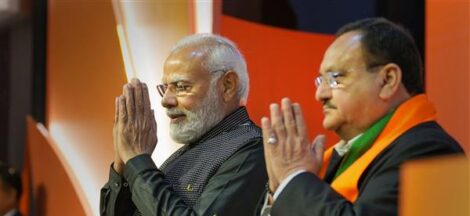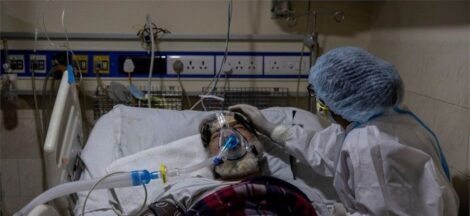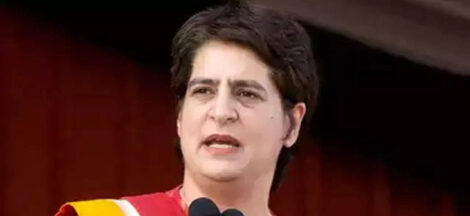By John Wojcik
During my two-week vacation in Germany last month it was clear to me that Germany, like the U.S., is at a crossroad. Dangerous developments connected with a rising fascist movement under the banner of the Alternative for Germany (AfD) are underway. Germany’s Left Party (die Linke), on the other hand could well be on its way toward mounting an effective fightback.
First, the bad news The German version of the Nazis and KKKers who descended on Charlottesville, Virginia, last year are out and about in that country too. They’re in the streets flashing barely disguised Nazi symbols (Displaying the swastika is still illegal in Germany) and shouting anti-immigrant slogans.
But, like in the U.S., there are also the clean-cut, “respectable” politicians and commentators who yearn for a return to the days when Germany was “great.” I saw them on the afternoon and evening talk shows giving interviews and trying to put across the idea that the AfD is a party of “decent” Germans interested in a good life for the German people, free of immigrants and anti-social elements they claim are “overrunning” the country.
Another major parallel is that Germany, like the U.S., is a wealthy and powerful player on the world’s economic stage. Capitalism in Germany results in less than 50 billionaires being “worth” as much as 41 million other Germans combined. The wealth gap, though not as big as it is in the U.S., qualifies as obscene. Children of single mothers are in overcrowded classrooms. Immigrants struggle to raise kids who are sometimes the victims of bullying and discrimination in schools. Seniors find it difficult to live on their pensions. Skyrocketing rents force them, and young people too, out of apartments and send them further away from the city centers.
All of these problems are shaper in the East, the former German Democratic Republic, than they are in the West, the former Federal Republic of Germany.
Now the good, or at least better news When it comes to the right-wing thugs who carry on in the streets, Germany’s youth have been turning out in huge numbers to overwhelm them with massive, peaceful demonstrations.
On the electoral scene, however, the AfD has not been as easy to deal with. Now at about 15 percent in national polls that come out every day in the Berlin newspapers, the AfD is a hair behind the Social Democrats’ second place – a second place that is getting weaker every day. Merkel’s conservative Christian Democratic Union (CDU) is moving more to the right, under pressure from its sister party, the Cristian Social Union (CSU) in Bavaria and from the AfD. The CSU, fearful of losing first place there, with far under 50 percent of the support in that state, is also trying to win back voters it has lost to the AfD. There is some talk that the CSU may do something thus far ”verboten” in the Christian parties – enter into a coalition with the AfD.
The Greens, once a party for which progressives had great hopes, are instead moving closer to big business. Perhaps the worst of these unfortunate situations on the electoral front is that of the Social Democrats. Once Germany’s most powerful political party and having close ties to the labor movement, it has lost support and has entered into an unpopular coalition with the two Christian parties. Some of its members have even defected to the AfD which, like the Trumpites in the U.S., poses as a friend of the workers.
This leaves us with die Linke Die Linke is the only party in the Bundestag committed to peace, opposed to the placement of German troops anywhere outside Germany, pushing for drastic hikes in the minimum wage, for affordable housing on a mass scale, for higher pensions, for improved child care and for improved care for the aged. It also is the leader, for all practical purposes, of the anti-fascist movement in Germany. To understand the significance of die Linke in German politics one has only to imagine a Germany without it. There would be almost no calls in the Bundestag for a policy of peace or for any policies that boost the working class and its allies.
This important party, however, has been unable to exceed 11 percent, or, at times, 12 percent in the polls. While it has made slight gains in some of the West German states it has lost some support in some of the East German states. The aging and death of some of the older supporters in the East, people who supported socialism in the GDR days, have contributed to some of this slippage.
Another problem for die Linke, ironically, results from some of the successes it has had. Die Linke has achieved power in Red, Red, Green Coalitions in three East German states and is the ruling party in one of them. In Berlin, for example, the mayor is a Social Democrat and the Vice Mayor is from die Linke. The ruling Senate has three Social Democrats, three die Linke members and three Greens. The conservative CDU, the pro-business Free Democrats and the AfD are completely frozen out of the government.
Sahra Wagenknecht, 49, co-chair of die Linke caucus in the Bundestag. Polls in Germany have her as the second most popular political figure in the country, behind only Angela Merkel herself. Wagenknecht is frequently on TV, challenging the right wing narratives. Her skills as an orator have helped propel her into prominence in the national debates. Left wingers in Germany have rarely gained the popularity she has.
Wagenknecht, who hails from the former German Democratic Republic, is married to Oskar Lafontaine, a former leader of the Social Democrats who left that party and joined die Linke because the Social Democrats had sold out the workers. Their personal union reflects die Linke as a whole which has in its membership committed Marxist Leninists on the one hand and left social democrats on the other.
The two have announced the formation on September 4 of Aufstehen (Stand up, pronounced Owf-shtayen). Forty prominent German supporters will join them on that day in announcing the new formation. The purpose, they say, is to reach out to all those disappointed by the existing parties but in particular to members of the Greens, the Social Democrats and die Linke. The aim is to form a mass organization that will mobilize on the local and national level against the rising tide of fascism in Germany and against the AfD specifically. They envision Aufstehen as a grassroots organization that will lead mass activities by workers on the job, the youth, seniors, the jobless and others. Members would remain as members of the political parties to which they already belong.
The idea behind Wagenknecht’s project is to impact all of the political groupings. Among the Christian Democrats the approach would be to win people to demand a party whose politicians stop selling themselves to big corporations, with the same approach for the CSU in Bavaria. Among the Social Democrats the plan is to offer an alternative for members angry about the party leadership’s betrayal of workers, with the same approach for the Greens. And with die Linke, Aufstehen hopes to eliminate the lack of militancy characteristic of some die Linke leaders who focus mainly on gaining entrance to local and national legislative bodies. Aufstehen intends to mobilize enough people from all of these groups to both alter the right-wing course of the German economy and to successfully reduce support for the AfD.
So the dilemma for die Linke is as follows. It is perhaps realistic in some ways to oppose policies which draw educated and well-trained people away from poorer countries, while using some of them and some of those less well educated and trained to push down wages. The concern for many in die Linke and for progressives generally is “can a left-wing party express this problem without grazing too closely to right-wing pastures?” The other question, of course, is whether die Linke can continue to be the main “Let them all come” party and still be able to attract people away from the AfD?
There is another parallel here with the U.S. where progressives debate whether it is worthwhile to win back people who voted for Trump or whether it is better to just go out and try and build a new electorate altogether. Lafontaine has said: “Aufstehen wants to appeal especially to those who have been disappointed for many years, who don’t see themselves represented any longer in the political scene – including those who voted sometimes for the AfD to express their protest. We want to win back those voters.”
Die Linke is grappling here with a problem we have in the U.S. Do you or how do you reach those misled into racist directions without abandoning them into the realm of the racists. The problem is complex. Aufstehen could well achieve a major change in a positive direction for politics in Germany. It could also fail to work as intended and even contribute to nascent splits within or the demise of die Linke.(IPA Service)
The writer is the editor in chief of Peoplesworld.org.
The post Uncertain Times For Germany’s Politics appeared first on Newspack by India Press Agency.


